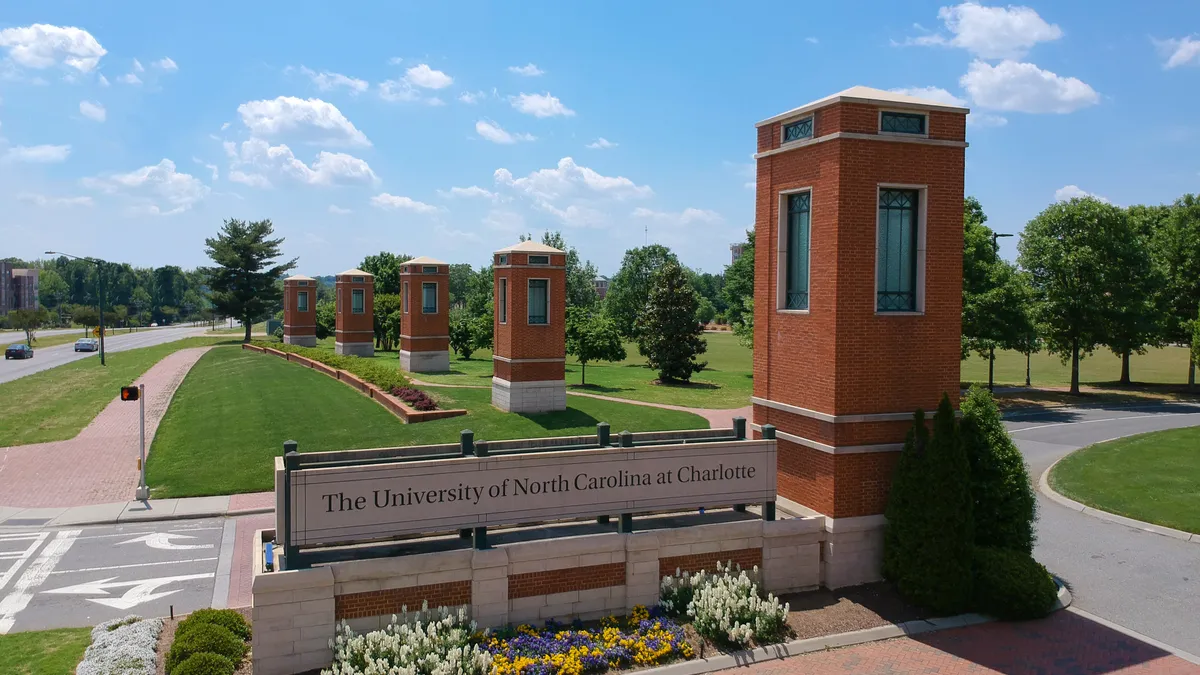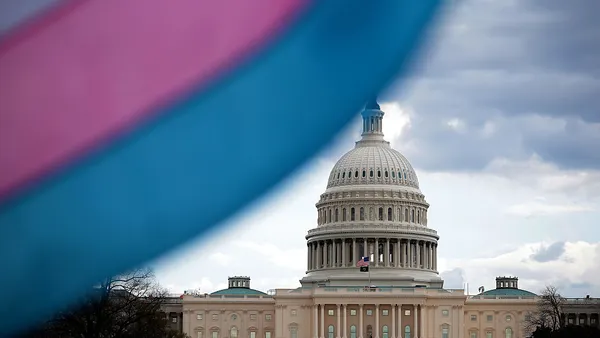Sharon L. Gaber is the chancellor of the University of North Carolina at Charlotte.
America's system of higher education is in the throes of a five-alarm crisis, but it has nothing to do with the coronavirus pandemic. Rather, this crisis calls into question the very notion that college can be an engine of economic mobility for those on the lowest rungs of the ladder.
So much has been made of the need to help more disadvantaged students attend college, and access is a critical issue. But the crisis in higher ed today is also about success. Yes, how many students start college is important, but we also need to focus on how many finish.
The promise of a bachelor's degree as a game-changer can be fulfilled only for those who complete their education.
As the new chancellor at UNC Charlotte, I'm pleased to see higher ed in this region is making a difference in bridging the opportunity gap, but more can be done to unleash its potential as a vehicle for economic mobility, locally and beyond. And I believe UNC Charlotte's work to close that gap could serve as a model for other colleges and universities across the country.
We're approaching this in two ways: helping community college students transfer and bringing back former students who didn't finish.
In North Carolina alone, of roughly 500,000 high school graduates expected to enroll in a postsecondary institution between 2018 and 2029, fewer than half will graduate on time, and many will not complete their degrees, according to a report by the NC Education Pipeline Research Project, which studies educational attainment in the state. For all public universities in North Carolina, the six-year graduation rate gap between first-time students who received the federal Pell Grant, an indicator of financial need, and those who didn't is 14.1%. At UNC Charlotte, we've narrowed that gap to just over 3%.
Over the past 10 years, UNC Charlotte — now the second-largest public institution in North Carolina and the only public research university in our part of the state — has steadily increased access for low-income students in the region. Approximately 75% of our students receive financial aid, 37% are first-generation undergraduates, and a similar share — more than 11,000 students — come from underrepresented and underserved backgrounds.
Getting more students across the finish line has required rethinking all majors to reduce barriers to progression and graduation, helping students select the right course of study, and strengthening their commitment and ability to succeed. More specifically, it requires hands-on intervention to manage individual student outcomes.
Enter 49erNext and 49er Finish.
We know low-income students disproportionately choose community colleges as their entry point to higher education, many with the hope of eventually securing a four-year degree. This past year, 64% of all UNC Charlotte transfer students came from a North Carolina community college, on par with past years. Difficulty transferring credits is a known challenge for students looking to make the jump from a community college to a four-year institution. Research shows that only about 14% of all community college students transfer and receive a degree from a four-year school, and very few are low-income students.
UNC Charlotte's 49erNext program tackles this barrier head-on by offering a seamless path to a successful transfer. The university and its partner community colleges collaborate on advising, financial aid planning and career exploration. Additionally, UNC Charlotte provides progress-to-degree guidance for students in the program who are enrolled at the community college, allowing advisers there to provide the best guidance for 49erNext students.
The ability to offer mid-course correction for students while they are still enrolled at a community college is critical because it helps to ensure that students can enroll at UNC Charlotte without losing credits or momentum.
49erNext also helps students connect to UNC Charlotte through opportunities to get involved in athletics, clubs and activities, and use our campus facilities.
We introduced the program in the fall of 2019 with Central Piedmont Community College, which is the state's second-largest community college and enrolls more than 41,000 students each year. 49erNext has since expanded to five more community colleges throughout the state, including Wake Tech, its largest community college.
The program enrolled nearly 300 students this year and is expected to grow to more than 500 once all of the current partners are fully implemented. It builds on UNC Charlotte's existing advising program.
Transfer issues aren't the only ones we're looking to address. Some students leave school before completing their undergraduate degree — often low-income individuals who drop out because of family obligations or financial hardship — and don't know where to begin once they're ready to get back on track. Recent research from Third Way shows that first-time, full-time students entering the average U.S. public four-year college or university are more likely to not graduate than they are to graduate from that same school. Only 80 schools — about 15% of four-year public colleges — had more than two-thirds of first-time, full-time students earn a degree within six years, Third Way found.
The 49er Finish program assists former UNC Charlotte degree-seeking students who have already completed at least 90 credit hours (putting them about 75% of the way through). Program advisers operate as ombudsmen between academic departments and students. Not only do students receive advising tailored to their specific needs, but the program also provides referrals to appropriate campus resources, scholarship opportunities, transition seminars and more.
Since its inception in 2005, 49er Finish has re-enrolled more than 1,100 students, and 93% have gone on to complete their degrees.
UNC Charlotte is building on what we have learned from 49er Finish by developing a program to reduce the number of students who drop out for financial reasons and to increase the options for students who are close to completion to earn their degrees.
The 49erNext and 49er Finish programs espouse the necessity of developing an institutional infrastructure that improves economic mobility by meeting students where they are and providing adequate tools and resources to set them up for long-term success.











